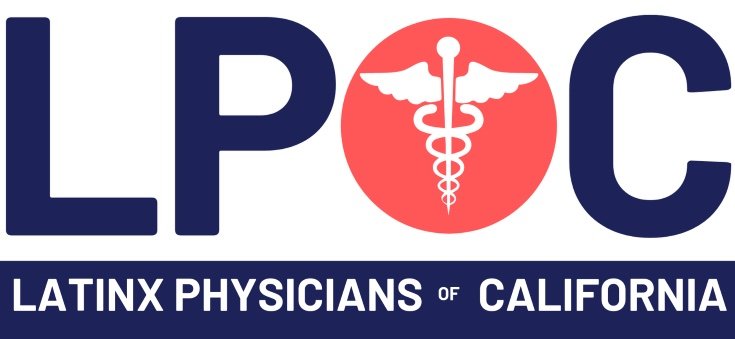One Big, Divisive, Destructive Bill
President Trump’s “One Big Beautiful Bill” which is formally known as H.R. 1, was recently passed by the Republican-led Congress using the reconciliation process. This is a process that allows Congress to pass a bill by a simple majority when the same party controls the House, Senate, and Executive Branch. Not surprisingly, on the whole, H.R. 1 reflects President Trump’s domestic priorities, which includes extending tax cuts for the wealthiest Americans, repealing clean energy policies passed under the Biden Administration, and cutting social services including Medicaid and the Supplemental Nutrition Assistance Program (SNAP).
Looking at H. R. 1 strictly from a health care policy standpoint, the planned Federal cuts to Medicaid meaningfully impact the state Medi-Cal program and, in turn, will impact Medi-Cal recipients, physicians and clinicians who provide care to these members, and the health care system in every county in CA. The full weight of the impact of these cuts on Medi-Cal is not yet known but it will become clearer as state agencies issue regulations to implement the specific cuts that will be made to programs to achieve their savings goals.
How will these cuts impact Medi-Cal members?
The cuts will have multiple impacts on Medi-Cal. There will be direct impacts to Medi-Cal recipients, Medi-Cal providers, and reduce the funding level CA receives from the federal government. Here is a summary:
| Enacting Work Requirements: | Requires states to condition Medicaid eligibility for individuals ages 19 to 64 on working or participating in qualifying activities for at least 80 hours per month by December 31, 2026. Applies to the expansion population (over 100% of FPL) and exempts certain adults, including parents with children ages 13 and under and those who are medically frail. |
| Increased eligibility verifications: | Requires states to conduct eligibility verifications for the expansion population every 6 months by December 31, 2026. Members will be required to submit documentation every six months as part of this requirement. |
| Limits on state provider taxes: | Prohibits states from establishing any new provider taxes or from increasing rates of existing taxes. For expansion states only, the 6% hold harmless threshold will be lowered by 0.5% per year, starting in FY 2028, until the threshold is 3.5% in FY 2032. In expansion states, the reduction in the hold harmless threshold would not apply to provider taxes on nursing facilities or intermediate care facilities. The “hold harmless” threshold is the maximum amount a of patient revenue that can be collected through a provider tax. |
| Cost-sharing for expansion population: | Requires states to enact cost sharing beginning October 1, 2028 for expansion individuals with incomes greater than 100% of federal poverty level (FPL). Cost-sharing levels would be left to the discretion of the states but would be capped at $35 per service; certain services are exempt from cost-sharing. |
H.R. 1’s provisions have varying effective dates, and many will require implementation guidance in the form of federal and/or state regulations.
Here are the planned effective dates for the provisions:
According to the Kaiser Family Foundation (KFF), the OBBB cuts more than $1 trillion in Medicaid spending. The five biggest sources of Medicaid savings in the Senate reconciliation bill sum to $896 billion in savings, which is 87% of the total, and includes:
Mandating that adults who are eligible for Medicaid through the Affordable Care Act (ACA) expansion meet work and reporting requirements ($326 billion)
Repealing the Biden Administration’s rule simplifying Medicaid eligibility and renewal processes ($167 billion)
Establishing a moratorium on new or increased provider taxes and reducing existing provider taxes in expansion states ($191 billion)
Revising the payment limit for state directed payments ($149 billion)
Increasing the frequency of eligibility redeterminations for the ACA expansion group ($63 billion)
Dr. Hector Flores, a LPOC Board Member, in this excerpt from in his June 14, 2025 letter to U.S. Senator Bernie Sanders, put the destructive impact of H.R. 1 into local terms:
What is LPOC doing to help preserve access to care for our Latinx communities? What can you do to advocate against cuts to the Medi-Cal program?
LPOC has been active in advocacy efforts with our local, state, and federal elected members, including written outreach urging the protection of Medicaid. In May 2025, LPOC issued a policy statement, which has been shared with our advocacy allies, and elected leaders. You can find our policy statement on the LPOC website here.
Additionally, LPOC Board Member, Dr. Felix Nunez, in his role as Gold Coast Health Plan CEO, has worked in collaboration with Health Plan trade associations, Association for Community Affiliated Plans (ACAP), Local Health Plans of California (LHPC), Special Needs Plans (SNP) Alliance, and Medicaid Health Plans of America (MHPA). Dr. Nunez has also been a fierce opponent of H.R. 1.
His work has increased public awareness and advocated opposing cuts to the Medicaid program through press releases, public statements, and coordinating efforts for a coalition sign-on letter where Gold Coast Health Plan joined more than 20 local government, provider, and community organizations in urging Congress to protect access to Medicaid.
LPOC welcomes you to join our efforts to build power together - and not panic to protect our vulnerable communities. Help support a LPOC event in Sacramento on September 10, where the Honorable Xavier Becerra, former US Secretary of Health and Human Services, will be our keynote speaker, and will address these issues and more.




